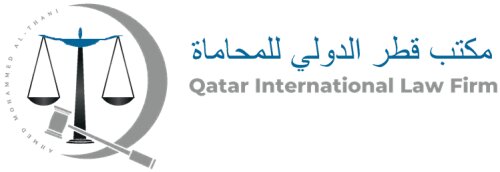Best Education Law Lawyers in Qatar
Share your needs with us, get contacted by law firms.
Free. Takes 2 min.
Or refine your search by selecting a city:
List of the best lawyers in Qatar
About Education Law in Qatar
Education Law in Qatar encompasses the legal frameworks and regulations that govern the education system within the country. This includes the establishment and management of educational institutions, the rights and responsibilities of educators and students, and adherence to national education standards. Qatar places a significant emphasis on providing quality education, and its legal system reflects the country's commitment to educational development and reform. The laws ensure the protection of students' rights, the regulation of private and public educational institutions, and compliance with international education standards.
Why You May Need a Lawyer
There are several situations in which individuals or institutions may require legal assistance in the field of Education Law. Common scenarios include disputes between educational institutions and students or parents, issues related to the accreditation and licensing of private schools, employment disputes involving educators or school staff, and compliance with regulatory requirements set by the Ministry of Education and Higher Education. Legal support may also be necessary when dealing with issues involving discrimination, harassment, or violations of student rights, as well as navigating complex educational administrative processes.
Local Laws Overview
Qatar's education legal framework is guided by a comprehensive set of laws and decrees established to enhance educational quality and accessibility. Key aspects include the regulation of independent and private schools, the enforcement of compulsory education for children, adherence to Islamic principles within the educational context, and policies promoting inclusivity and non-discrimination in schools. Legal guidelines also cover teacher certification processes, curriculum standards, and the establishment of higher education institutions. The Qatari government frequently updates these regulations to align with international standards and educational best practices.
Frequently Asked Questions
What are the main regulatory bodies overseeing education in Qatar?
The primary regulatory body overseeing education in Qatar is the Ministry of Education and Higher Education. It is responsible for implementing government policies, standards, and laws related to both public and private education.
Is education compulsory in Qatar?
Yes, education is compulsory for children in Qatar from the ages of 6 to 18, ensuring that all children have access to free primary and secondary education.
Are there legal protections against discrimination in schools?
Yes, Qatari Education Law includes provisions against discrimination, ensuring that all students have equal access to educational resources and opportunities.
What are the requirements for opening a private school in Qatar?
To open a private school in Qatar, one must obtain the necessary licenses and approvals from the Ministry of Education and Higher Education, comply with curriculum standards, and meet infrastructure and staffing requirements.
How are education disputes typically resolved in Qatar?
Education disputes in Qatar can often be resolved through mediation or arbitration. However, serious or unresolved disputes may require legal intervention through the Qatari court system.
Can international schools operate in Qatar? If so, what are the conditions?
Yes, international schools can operate in Qatar. They must comply with local regulations, obtain the necessary licenses, and follow guidelines set by the Ministry of Education and Higher Education. They may offer international curricula alongside the national curriculum.
Are there legal standards for teacher qualifications?
Yes, there are specific legal criteria for teacher qualifications in Qatar, which typically include relevant educational degrees and certifications, alongside a requirement for continuous professional development.
What should I do if I suspect a violation of education law?
If you suspect a violation of education law, you should report it to the relevant authorities such as the Ministry of Education and Higher Education. Seeking legal advice from a qualified education lawyer can also help navigate the situation.
How do I ensure that a foreign degree is recognized in Qatar?
To ensure a foreign degree is recognized in Qatar, you must have it attested by the relevant authorities in your home country and then submit it for equivalency acknowledgment by the Ministry of Education and Higher Education in Qatar.
What role does the Supreme Education Council play in Qatar?
The Supreme Education Council was previously responsible for overseeing education reforms in Qatar. However, its functions have since been integrated into the Ministry of Education and Higher Education to streamline the management of the education sector.
Additional Resources
For additional support and information, consider contacting the legal department of the Ministry of Education and Higher Education, local legal firms specializing in education law, and educational consultancy services across Qatar. These resources can provide valuable insights and professional guidance related to education legal matters.
Next Steps
If you find yourself in need of legal assistance concerning Education Law in Qatar, the first step is to seek consultation with a qualified lawyer who specializes in this field. Gather all pertinent documents and information related to your case, communicate clearly your concerns and objectives, and explore the legal options available. Consulting with legal professionals will help ensure that your rights and interests are adequately represented and protected.
Lawzana helps you find the best lawyers and law firms in Qatar through a curated and pre-screened list of qualified legal professionals. Our platform offers rankings and detailed profiles of attorneys and law firms, allowing you to compare based on practice areas, including Education Law, experience, and client feedback.
Each profile includes a description of the firm's areas of practice, client reviews, team members and partners, year of establishment, spoken languages, office locations, contact information, social media presence, and any published articles or resources. Most firms on our platform speak English and are experienced in both local and international legal matters.
Get a quote from top-rated law firms in Qatar — quickly, securely, and without unnecessary hassle.
Disclaimer:
The information provided on this page is for general informational purposes only and does not constitute legal advice. While we strive to ensure the accuracy and relevance of the content, legal information may change over time, and interpretations of the law can vary. You should always consult with a qualified legal professional for advice specific to your situation.
We disclaim all liability for actions taken or not taken based on the content of this page. If you believe any information is incorrect or outdated, please contact us, and we will review and update it where appropriate.
Browse education law law firms by city in Qatar
Refine your search by selecting a city.
















